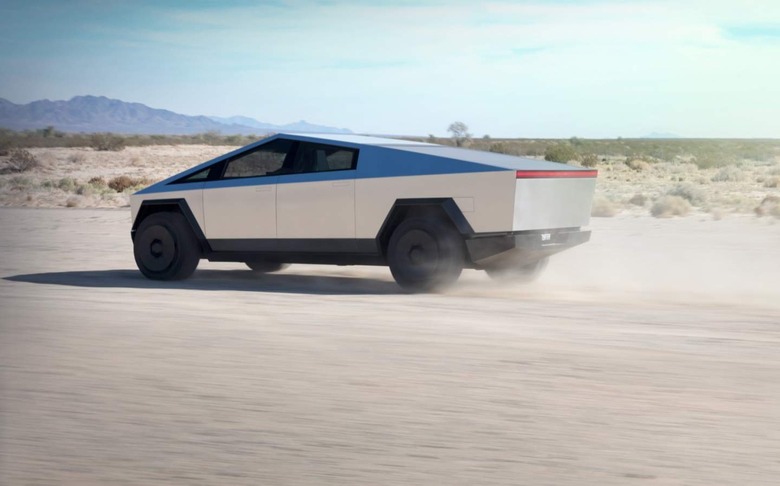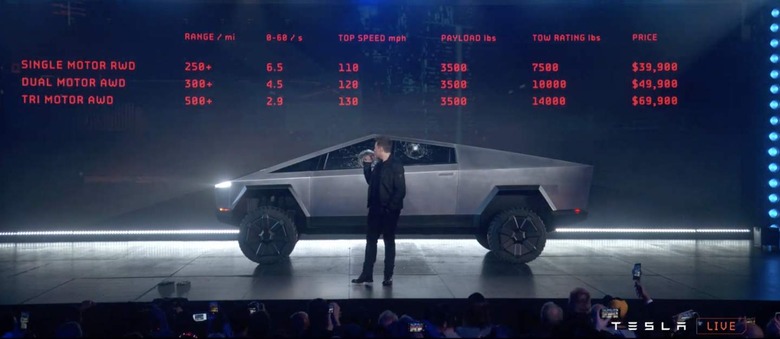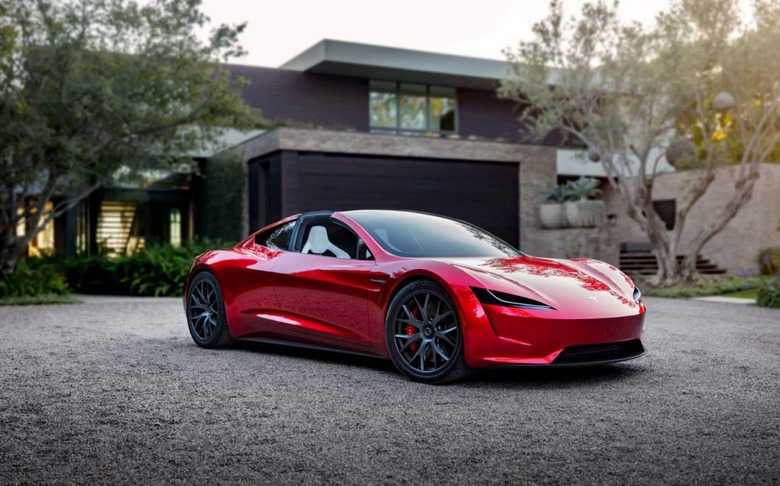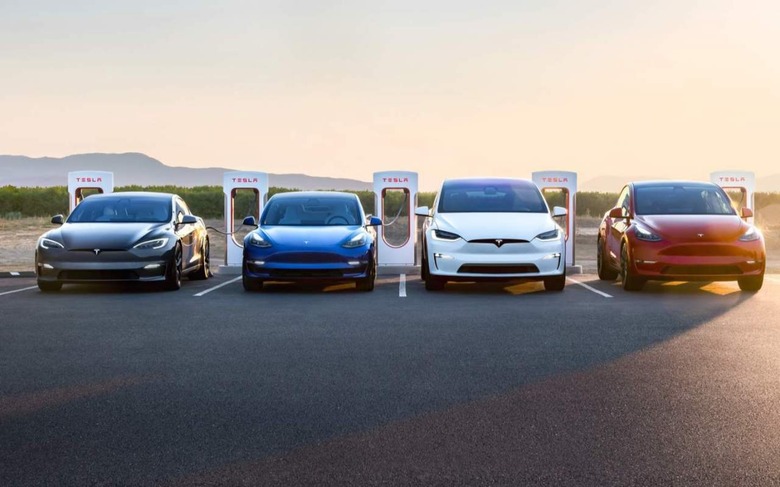Tesla Cybertruck Delayed Again Plus Elon Musk Squashes $25k EV Rumors
Tesla closed out 2021 with a bumper year, besting Q4 estimates and pushing EV deliveries past 300,000, though Elon Musk tempered hopes for the arrival of the Cybertruck and more affordable models. Revenue in the year as a whole grew 71%, Tesla announced, describing 2021 as "a breakthrough year" for the automaker, but some of the most anticipated electric vehicles are still some way out.
No Tesla Cybertruck until 2023
The most conspicuous project that Tesla has underway is undoubtedly the Cybertruck. The oddly-shaped all-electric pickup proved controversial when Elon Musk first revealed it, and glimpses of development prototypes in the intervening years haven't dimmed its ability to polarize opinion. Undoubtedly the most frequently-asked question, however, is when Tesla actually might put the Cybertruck into production.

Tesla's investor deck continues with the same, vague timeline as has been stated in previous releases. "We are making progress on the industrialization of Cybertruck, which is currently planned for Austin production subsequent to Model Y," the automaker says.
Speaking on the investor call, however, Musk confirmed that the Cybertruck wouldn't go into production this year. The primary focus for Tesla, the CEO explained, would be ramping production of its existing models, like the popular Model 3 and Model Y. They're still in strong demand, with orders for some configurations of Model Y not expected to be delivered until August 2022.

For the Cybertruck, there are still technological hurdles to be worked through, Musk admitted. The automaker is also still trying to figure out how to make it affordable: there was widespread surprise when Tesla announced the full-size electric pickup would have a starting price of around $40,000 when it began taking reservations in late 2019. For the moment, Musk said, the hope is that production can begin sometime in 2023.
Don't expect the Tesla Roadster any time soon, either
What goes for the Cybertruck, also goes for Tesla's rebooted Roadster. Also the spur of no shortage of reservation deposits – or the full $250,000 apiece in advance for those wanting one of the first 1,000 "Founder's Series" cars – the Roadster was originally intended to go into production in mid to late 2021. That was delayed to 2022, and then to 2023.

The good news is that it's still, apparently, on track for that timescale, though as Tesla feels the impact of the supply chain issues affecting the whole auto industry that could still change in the meantime. Chip constraints were name-checked by Musk as being a primary bottleneck for 2021 production of its cars, arguing that if Tesla tried to introduce new models in 2022 it would only have the overall impact of cutting total production output. The need to assign resources to new models would take away from the ability to build cars like the Model 3 and Model Y, he pointed out.
Engineering and tooling-up for the upcoming Tesla models may still begin in 2022. However they won't go into production until 2023 at the earliest.
The $25,000 Tesla isn't happening
Though Tesla hasn't been affected by the "market adjustments" that have seen dealers of other brands add thousands or even tens of thousands to the sticker price of a new car, it's clear that the EV-maker is still focused on the trims with the biggest profit margins. Despite previous chatter of a $25,000 Tesla that could undercut even the most affordable Model 3, Musk says that's simply not on the cards.
"We have too much on our plate," the CEO said during the investor call.
The reality is, while Tesla has been surprisingly well placed for dealing with the supply chain crunch – including making admirable use of existing chip supplies by reprogramming its software to suit – like most car companies it can't build as many as it would like to. Focusing on maximizing the return on each vehicle is the inevitable result, not only by prioritizing the more expensive configurations, but on post-sale software enhancements too. Indeed, "over time, we expect our hardware-related profits to be accompanied with an acceleration of software-related profits," the investor deck points out.

